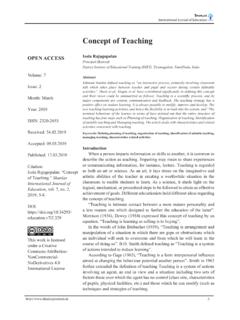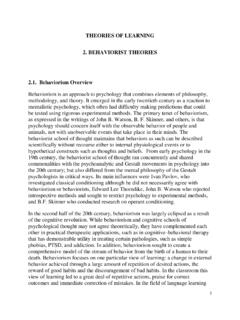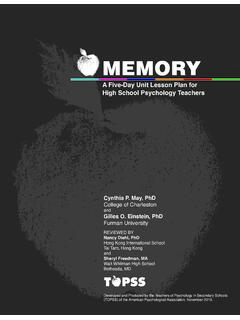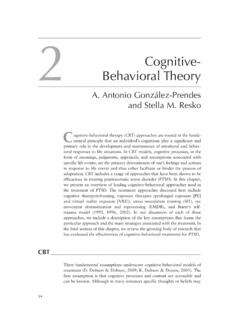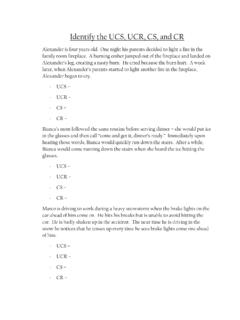Search results with tag "Classical conditioning"
LEARNING AND TEACHING : THEORIES, APPROACHES …
ijonte.orgConditioning occurs in a way that an organism matches a certain stimulus around with a certain reaction. When a reaction is associated with a stimulus apart from a stimulus that naturally moves itself, it is said to be conditioned. Conditioning can be divided into two such as classical and operant. Classical conditioning
Concept of Teaching - ed
files.eric.ed.govConditioning, when compared with teaching, is normally operant conditioning and not classical conditioning. Operant conditioning may seem to be simply a systematic form of training and hence teaching. Common school practices such as giving rewards for good behaviour can be described as setting up a situation in which a reinforcer depends
THEORIES OF LEARNING 2. BEHAVIORIST THEORIES 2.1 ...
courses.aiu.eduClassical conditioning (also Pavlovian conditioning or respondent conditioning) is a kind of learning that occurs when a conditioned stimulus (CS) is paired with an unconditioned stimulus (US). Usually, the CS is a neutral stimulus (e.g., the sound
Summaries of Learning Theories and Models
fcc-educ120.weebly.comClassical Conditioning (Pavlov) Summary: Classical conditioning is a reflexive or automatic type of learning in which a stimulus acquires the capacity to evoke a response that was originally evoked by another stimulus. Originators and Key Contributors: First described by Ivan Pavlov (1849-1936), Russian
More Examples of Classical Conditioning
ep309.org•Example: Getting a shot….1st kid cries a little, kids down the line start to cry, and eventually kids are crying before they even ... –Classical conditioning occurs because the conditioned stimulus became a substitute for the unconditioned stimulus by being paired closely together –The same place in the brain is activated by both the ...
MEMORY - American Psychological Association
www.apa.orgimpair classical conditioning and procedural memory. 2. It was first discovered in work with people who had antero-grade amnesia (an inability to form new, long-term declarative memories) and seemingly could not form new memories. 3. it is assessed with implicit measures such as priming, in which participants do not know their memory is being ...
Cognitive- Behavioral Theory - SAGE Publications Inc
www.sagepub.comacquired on the basis of association through classical conditioning, or they can be learned vicariously through the process of observation (Bandura, 1977, 1986). That is, a person may learn to react with fear by observing oth-ers’ fearful reactions to specific objects or events.
Classical Conditioning Handout - MCCC
www.mccc.eduIdentify the UCS, UCR, CS, and CR Alexander is four years old. One night his parents decided to light a fire in the family room fireplace. A burning ember jumped out of the fireplace and landed on

